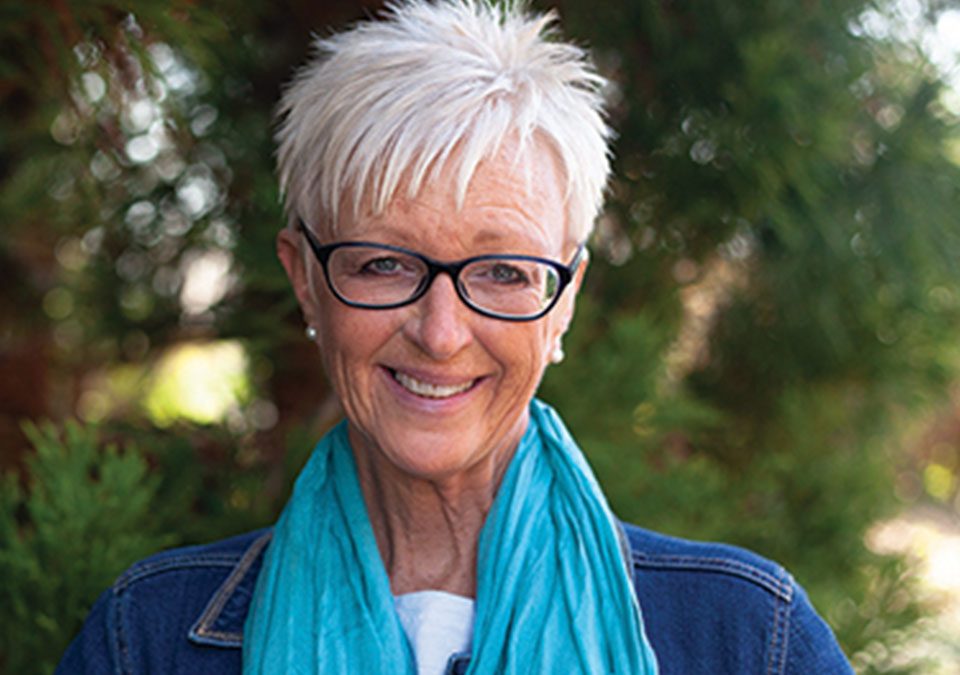[This article was originally published in the Greenville Journal on June 6, 2018 ]
Written By Melody Wright

David White (founder and CEO), Hope Woford (student advocate), and Jasmine Brockman (program manager) of Fostering Great Ideas. Will Crooks/Greenville Journal
Scared. Alone. Confused. Removed from the certainty of the familiar and placed in the world of unknowns, most children entering foster care fear the upcoming journey.
Last year, more than 437,000 children in the U.S. lived in foster care, according to data from the Adoption and Foster Care Analysis and Reporting System. Children are placed in foster care after being removed from their homes for a variety of reasons (often abuse, neglect, incarceration, drug abuse, or voluntary placement).
Moving from home to home with their belongings in trash bags, children in foster care can easily forget their worth. “It’s awful,” Jasmine Brockman says. “It makes you feel like we’re trash.” Brockman lived in 21 different homes during her seven to eight years in foster care. For every move up until she moved into her adopted home, she carried her belongings in trash bags.
“They were put in a situation that was out of their control, and they’re kids just like everybody else,” Hope Woford says of children in foster care. “They want their families back. They want someone to love and care about them.” Woford lived in care for about four years before she was adopted at the age of 13.
Brockman and Woford are just two of many people who have grown up or are growing up in foster care. They have this in common with one another, as well as the children they now work with at Fostering Great Ideas in Greenville.
The initial idea
FGI founder and CEO David White asked a question eight years ago to a Department of Social Services director in Brick Street Café. “Can our community do significantly more to improve the lives of children who live in foster care?”
After three listening sessions in 2010 with great responses from the community, FGI developed in 2011 under guidance from the Community Foundation of Greenville. One year later, FGI operated on its own as a 501(c)(3) nonprofit.
“By 2015, we hired our first program staff, and now, we have 11 part-time staff, myself, over 400 volunteers, 225 donors, and operations in Greenville, Spartanburg, and Denver, Colorado,” White explains.
As an individual and an entrepreneur, White is most concerned about what matters to the children in care. “We are the entrepreneurial complement to the current DSS system of care,” White says. “And the entrepreneurial complement always asks that question of how to change the life of the child in a stressed environment.”
The driving forces
Brockman and Woford use their personal experiences to help in this effort. Brockman manages the mentor program, Life Support. And, Woford manages a component of the program called College Fellows for those ages 17 and up.
For Brockman, the mentoring program was crucial. Being a mentee herself, she formed a strong relationship with her mentor, who is now her mother. “It was a really life-changing experience for me and it did save me personally.”
“It’s amazing what just having one committed relationship can do for a kid,” Brockman says. A lot of children in foster care are viewed as “troubled kids,” she says, and some children begin to believe that for themselves.
“So, the fact that if a person commits, it’s like, ‘What do they see that I don’t see in myself?’ Then they start thinking, ‘Well, I must be pretty amazing for this person to actually love me and be committed,’” Brockman says. “Then, they start changing their mindset, which then makes them change how they want their life to be.”
As part of her job, Brockman reads the reports from mentors of the program, and she says it often brings her to tears of gratitude for the mentors.
“I just want to be like, ‘Thank you for giving these kids a chance and a voice and actually making them see that they are worth everything good,’” she says. “The life that they had in the beginning wasn’t because it was their choice. I feel like [children in foster care] deserve goodness.”
Woford also witnesses the positive difference FGI makes in these children’s lives. Growing up as an older sister protecting her younger siblings, Woford understands the struggles of siblings being separated in foster care.
She saw her brother once and never saw her baby sister during her four years in foster care. “Not seeing them every day, not seeing them every month, just going years, it’s awful and it’s not fair,” Woford says. “So, I think Sib-Link bringing them together once a month is fantastic. I think it’s one of the best programs for sure.”
Working with College Fellows, Woford stresses the importance of supporting children wishing to pursue a college education. “I think our College Fellows’ mission ultimately is every child, every young adult deserves to go to college if they want to, whether they’re in foster care or not.”
Through Greenville Technical College making its aggregate data available, Woford discovered that she was the only graduating student in four years who self-identified as coming from foster care. This astonishing graduation rate for children in care inspired the creation of College Fellows.
Children in foster care may be untrusting and difficult to reach at first due to the instability in their lives.
But, Woford says, once you get past that point and they see that you keep coming back, the children begin to open up. They think, “OK, maybe this person does really care. Maybe I can start to trust people and I can achieve my goals and I can see my siblings. I can still love my family and not feel bad about that,” Woford explains. “So, I think Fostering Great Ideas really grasps all those concepts really well.”
The lasting mission
While White, who teaches MBA-level entrepreneurship at Clemson University, has not experienced growing up in foster care, he has made improving the lives of these children his life mission.
“My whole life has been focused on individuals who do not feel that they are seen. As a result, it solely became the child in care,” he says.
“The greatest compliment I had was, ‘How long were you in foster care?’ So, when I was asked that, it made me know that even though I was never in foster care, that I listened well and that I was responsive to the needs of individuals who, frankly, often feel invisible.”
With that entrepreneurial mindset, White framed FGI around the question, how would a child improve foster care if he had the authority to do so?
“They would find ways to lower their pain to allow them to feel dignity at every point, to build relationships that matter to them, and to engage the community,” he says. These points are what gave structure to FGI’s Journey Through Foster Care programs.
The programs begin as soon as the children enter care by giving them a friend, a teddy bear. The journey continues with programs focused on making positive memories during family visits, spending Thanksgiving holidays together, and providing luggage for the children.
FGI also offers programs to support the mothers and allow the children to share their stories, reconnect with siblings, receive mentoring, and receive academic and campus support for higher education.
“The composite nature of all this is to restore the dignity of the child, to rebuild their sense of wonder,” White summarizes. “And then to build relationships that matter to them, and then bring the community around the whole thing.”
To engage the community, FGI inspires others to foster, launches faith-based foster care ministries, improves policy at the state level through Speak Up, and offers a foster care simulation called Life in Limbo.
Through its grass-roots movement to improve law and judicial processes, three bills crafted by FGI have become law, and two more bills it has helped develop are becoming law.
June 6, 2018, 11:35 a.m.: This story has been updated to reflect that FGI has crafted three bills that have become law, and two more are becoming law. An early version said two bills have become law and three were becoming law. The Greenville Journal regrets this error.



